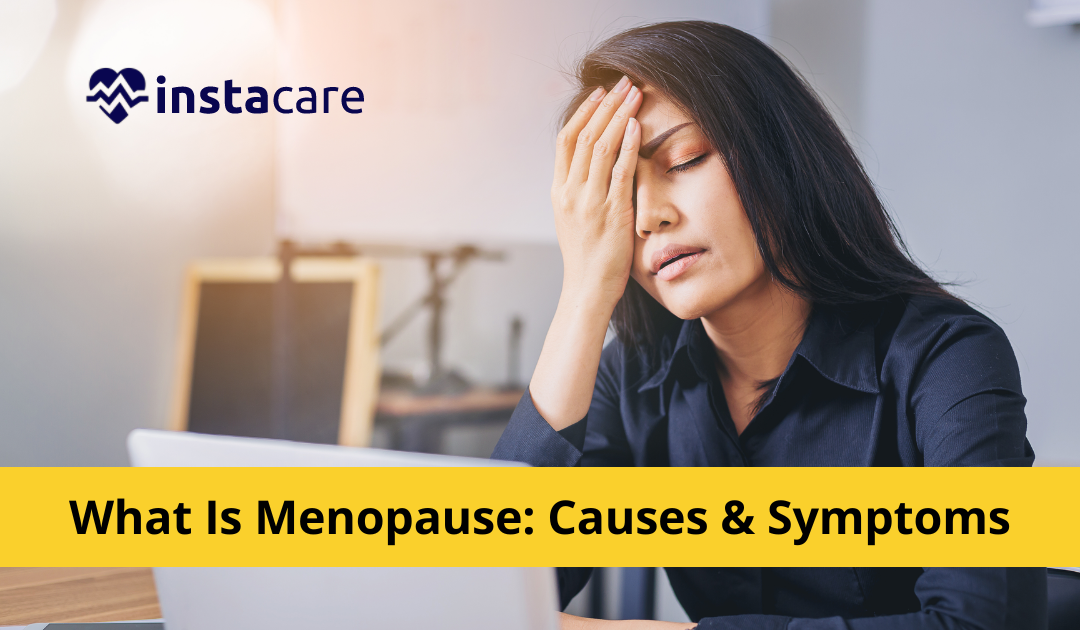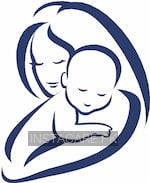When a woman also has gone 12 months indeed without having her period and can no longer conceive naturally, menopause sets in. Although it can develop before or after this age range, it often starts between 45 and 55. Unpleasant symptoms of Menopause include hot flashes and weight gain. The majority of women do not require medical therapy for Menopause.
When you reach Menopause, you will no longer get monthly periods. It signals the end of your fertile reproductive years and is a typical component of aging. Usually, Menopause starts in your late 40s or early 50s. However, surgical Menopause is experienced "suddenly" among those who have had their ovaries removed.
What Causes Menopause to Occur?
Menopause that isn't brought on by surgery or another illness is known as "natural menopause" and is an inevitable component of growing older. In the absence of surgery or any other medical condition that could artificially stop bleeding, such as hormonal birth control, an overactive thyroid, excessive prolactin, radiation, or also surgical removal of the ovaries, Menopause is defined as an entire year without menstrual flow.
But how do you confirm Menopause? If you don't have your periods after 12 months, it means you've entered the menopause phase. The reproductive cycle slows down and prepares to stop as you get older. Since puberty, this cycle has been running consistently. Your ovaries produce less estrogen as menopause approaches. Your menstrual cycle (period) starts to shift when this drop takes place. It can begin regularly, then stop.
View More: How To Get Your Periods Overnight
What Signs or Symptoms Accompany Menopause?
Menopause is a unique experience for every woman. Menopause that comes on quickly or gradually frequently has more severe symptoms.
The severity and duration of symptoms of Menopause frequently worsen under circumstances that affect the health of the ovary, such as cancer or hysterectomy, or under specific lifestyle conditions, such as smoking.
The symptoms of perimenopause, Menopause, and post-menopause are typically the same, except for variations in menstruation. The following are the leading early perimenopause symptoms:
- Less regular menstrual cycles
- Periods that are heavier or lighter than you often encounter
- Symptoms of vasomotor activity (VMS), such as hot flashes, sweating at night, and flushing
Hot flashes are thought to affect 75% of women throughout Menopause.
Other typical menopausal symptoms include:
- Insomnia
- Vulvar aridity
- Gaining weight
- Depression
- Anxiety
- Having trouble concentrating
- Memory issues
- Diminished sex desire or libido
- Dry mouth, eyes, and skin
- More frequent urination
- Sensitive or painful breasts
- Headaches
- Pounding heart
- Infections of the urinary tract (UTIs)
- Decreased muscle mass
- Stiff or painful joints
- Decreased bone mass
- Smaller breasts
- Loss or thinning of hair
- More body hair growth, especially on the face, neck, chest, and upper back
What Distinguishes the Perimenopause from the Menopause?
The interval just before the onset of Menopause is known as perimenopause. Your body is starting the process of entering Menopause during perimenopause. This indicates that your ovaries' hormone production is beginning to slow down. Some menopause-related symptoms, such as hot flashes, could start to affect you. During the perimenopause stage, your menstrual cycle may become irregular, but it won't stop. You've entered Menopause when your menstrual period stops for 12 months.
View More: 8 Signs Your Period Is Coming Tomorrow
How is the Menopause Identified?
If you have bothersome or incapacitating menopause symptoms, or if you have menopause symptoms and also are 45 years of age or younger, it is essential to speak with your healthcare professional. There are several blood tests for Menopause.
The Food and Drug Administration officially authorized the PicoAMH Elisa diagnostic test, a brand-new blood test. This examination is performed to evaluate whether a woman has reached Menopause or is on the verge of doing so.
Treatments Of Menopause
Menopause treatment does exist. If your symptoms are severe or impair your quality of life, you might need therapy. Women under the age of 60 or within ten years of the beginning of Menopause may benefit from hormone therapy for the management or decrease of:
- a hot flash
- morning sweats
- flushing
- vaginal wasting
- osteoporosis
More specific menopause symptoms, such as hair loss and vaginal dryness, may be treated with other drugs.
Conclusion
Menopause, which signifies the end of fertility, is the natural termination or limitation of a woman's menstrual cycle. Menopause typically occurs in women at the age of 52. However, it can happen suddenly earlier in life due to pelvic or ovarian injury. Early Menopause may also be caused by underlying diseases or genetics.
Please book an appointment with the best Gynecologist in Lahore, Karachi, Islamabad, and all major cities of Pakistan through InstaCare, or call our helpline at 03100002273 to find the verified doctor for your disease.
Source: https://instacare.pk/blog/what-is-menopause-causes-symptoms-and-treatments











